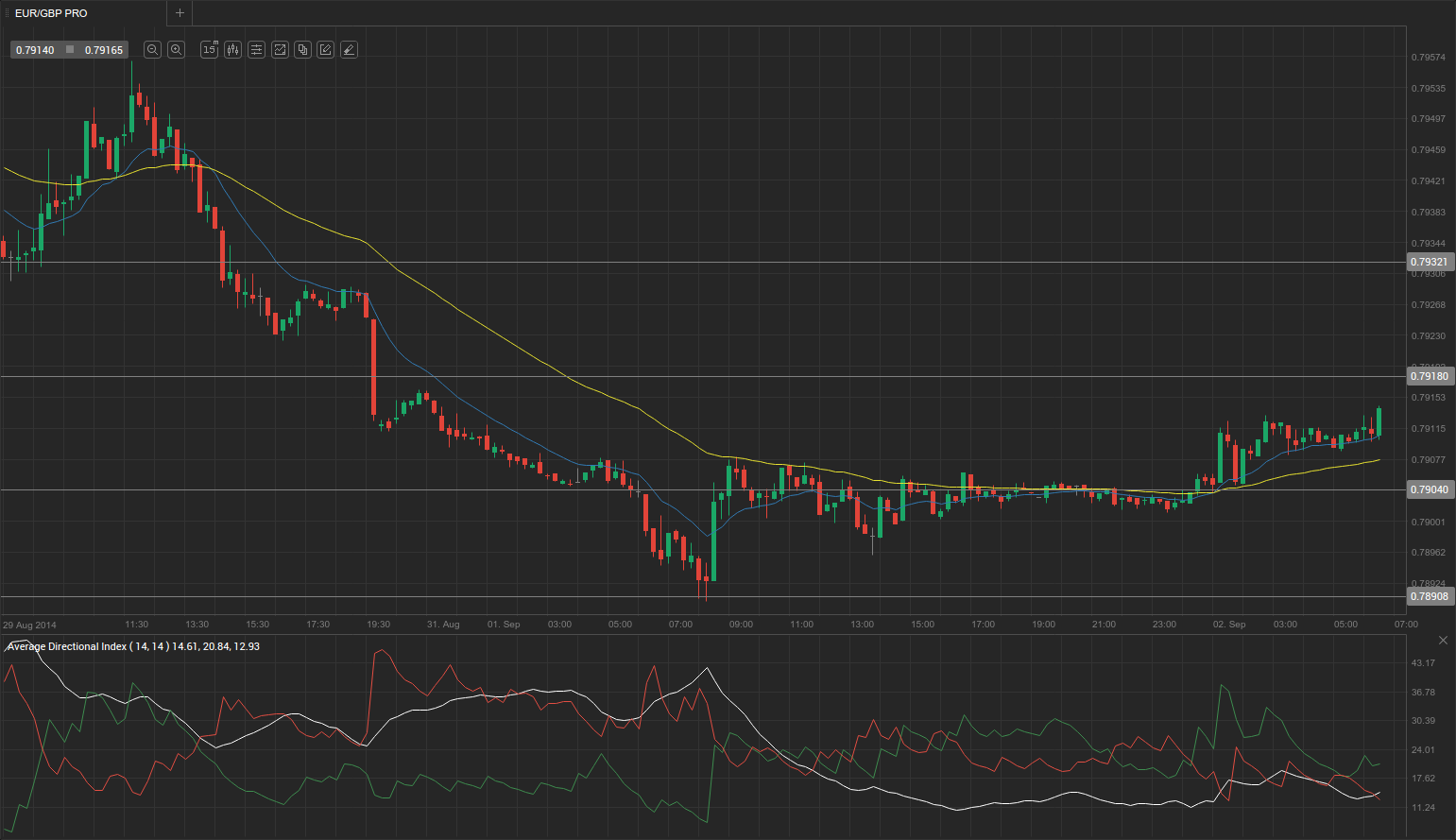Yesterday’s trade saw EUR/GBP within the range between 0.7917 and 0.7889, the lowest since July 24th. The pair closed at 0.7905, losing 0.09% on a daily, a fourth straight losing session.
At 6:39 GMT today EUR/GBP was up 0.13% for the day to hit to trade at 0.7915. The cross held in a daily range of 0.7902 – 0.7916.
Fundamental view
Spain’s Ministerio de Empleo y Seguridad Social (Ministry of Labor and Social Security) is expected to report at 07:00 GMT that the number of unemployed people during August rose by 26 000, compared to a decline of 29 800 in July.
Spain’s unemployment change is considered as a leading indicator as it gives a month-on-month insight into Spain’s labor market. A healthy labor market boosts consumer confidence, which has a positive effect on consumer spending and thus bolsters economic activity. Therefore, rising or higher-than-expected values are generally seen as bearish for the euro, and vice versa.
At 09:00 GMT, Eurostat will report on the Eurozone’s producer inflation in July. According to preliminary estimates, producer prices probably fell by 0.1% on a monthly basis, compared to a 0.1% gain in June. Year-on-year, PPI is expected to come in at -1.1%, compared to -0.8% a month earlier. If confirmed, this would be the highest deflation since April.
The PPI is an output index – it measures price changes from the makers of a product. Unlike CPI, these price changes are measured from the seller’s perspective. The PPIs are used as an aspect of output for the seller and as a cost factor for the buyer. PPI is considered as a leading indicator of consumer price inflation as inflationary pressures on producers are then passed on to retailers and ultimately – to consumers. The PPI does not only serve as an early indicator of inflationary pressures in the economy before it reaches the consumer, but it can also record the evolution of prices over longer time periods.
United Kingdom
Activity growth in United Kingdom’s sector of construction probably slowed down in August, with the corresponding PMI expected to come in at 61.4, down from 62.4 in May.
The index is based on a survey, encompassing managers of companies, operating in the construction sector. They are asked about their estimates regarding current business conditions (new orders, output, employment, demand in the future). Values above the key level of 50.0 signify that activity in the sector has expanded. Higher than projected readings would certainly heighten the appeal of the pound. The Chartered Institute of Purchasing and Supply (CIPS) is to announce the official reading at 8:30 GMT.
Technical view
According to Binary Tribune’s daily analysis, the central pivot point for the pair is at 0.7904. In case EUR/GBP manages to breach the first resistance level at 0.7918, it will probably continue up to test 0.7932. In case the second key resistance is broken, the pair will probably attempt to advance to 0.7946.
If EUR/GBP manages to breach the first key support at 0.7890, it will probably continue to slide and test 0.7876. With this second key support broken, movement to the downside will probably continue to 0.7862.
The mid-Pivot levels for today are as follows: M1 – 0.7869, M2 – 0.7883, M3 – 0.7897, M4 – 0.7911, M5 – 0.7925, M6 – 0.7939.
In weekly terms, the central pivot point is at 0.7937. The three key resistance levels are as follows: R1 – 0.7965, R2 – 0.8019, R3 – 0.8047. The three key support levels are: S1 – 0.7883, S2 – 0.7855, S3 – 0.7801.






